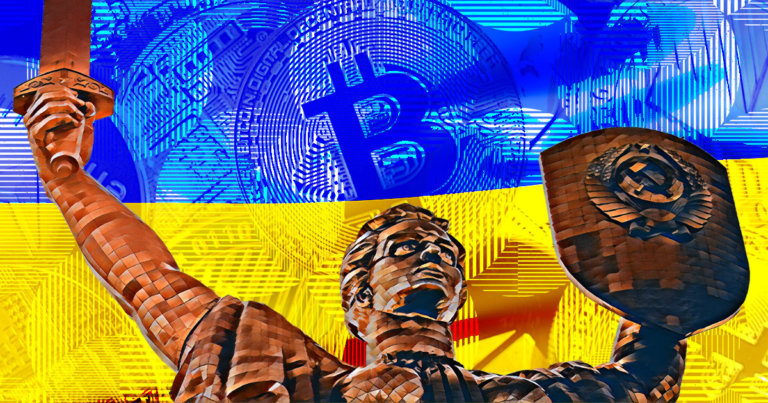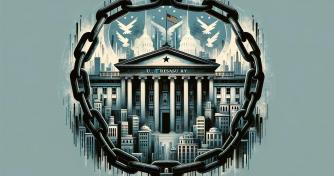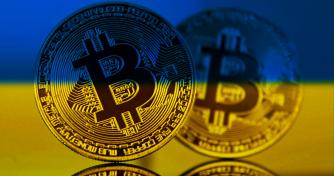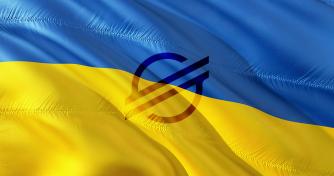 Here’s why war in Ukraine is bound to transform the nature of donations
Here’s why war in Ukraine is bound to transform the nature of donations Here’s why war in Ukraine is bound to transform the nature of donations

Cover art/illustration via CryptoSlate. Image includes combined content which may include AI-generated content.
When Russia invaded Ukraine, large numbers of people from around the world immediately pledged their support to the country under siege, donating their time and money to the cause. However, not many of their initial attempts were successful. Some fundraising pages for the country, such as Patreon, were removed for no apparent reason. Anyway, this is not the entire story. Here’s how, despite being bombed, innovators managed to do the right thing while working for a more decentralized future for the industry.
Unconditional Support and Global Struggle
When the conflict erupted and all of Ukraine’s major cities, as well as its economic and commercial centers, were attacked, it became clear that traditional funding would be rendered ineffective if all banks ceased to function. Back then, Mykhailo Fedorov, Ukraine’s vice prime minister, said, “Now even meme can support our army and save lives from Russian invaders,” referring to the well-known Dogecoin.
Aid for Ukraine, a platform in the form of a decentralized autonomous organization (DAO) established by Solana in collaboration with the Ukrainian government, was the first milestone in the entire crypto donation process. At this moment, this charity initiative holds nearly $1.4 million worth of funds that, as developers assure us, “will go directly towards aiding Ukrainians on the ground”.
Meanwhile, crypto exchange Uniswap has offered a function to allow its users to convert any Ethereum-backed digital currencies into Ether and send them directly to the wallet of the Ukrainian government. However, it basically means that donations can only be made in ETH or USDT, which are assets that not everyone in the crypto world possesses.
And this is where our initiative comes in, which we launched in the midst of the tragic events unfolding in our motherland. Even while hiding in bomb shelters, we mobilized and built a donation feature that cannot be shut down by a third party, such as Patreon, using Polkadot’s decentralized technology. Despite the tough circumstances and ongoing technical difficulties, we quickly raised nearly $1.5 million in various cryptocurrencies from the Polkadot and Kusama communities via our own Sub.ID for our Ukrainian Humanitarian Fund and Ukrainian Military Fund.
Furthermore, Dr. Gavin Wood offered to donate $5M to Ukraine if they would set up a Polkadot account (they had already set up accounts to receive Bitcoin and Ethereum donations). Wood also agreed to spread the word about the efforts made by Subsocial, of which we are very proud ourselves.
Afterwards, the Ukrainian government created a Polkadot account, allowing Dr. Gavin Wood (the founder of Polkadot), the Subsocial team, and anyone else in the community to donate directly to Ukraine in DOT, KSM, or various other tokens. This is particularly important because it allows people to send coins and tokens in a totally transparent way, without any middlemen that might take part of the funds for their own gain. It also means that the crypto community can provide humanitarian aid without having to go through the often time-consuming process of converting their cryptocurrency back into fiat currency.
Afterword for the Whole Industry
In the meantime, the global crypto community raised and donated approximately $25 million through various official channels, making this case even more impactful.
With that said, the Ukrainian crisis exemplifies how cryptocurrency, which was previously regarded as a means of money laundering and other illegal operations, can now help the entire country when traditional currency does not work or cannot be sent. If a humanitarian catastrophe occurs, time is money, and we cannot afford to waste it. So, even if a debit card declines, crypto will not. Aside from traditional regulatory procedures, this is an unprecedented opportunity for cryptocurrency to be widely accepted and adopted.
And, of course, it should not be overlooked. This time, cryptocurrency is more than just an asset; it is a way to help, regardless of where the hodler is, with life-saving results.























































